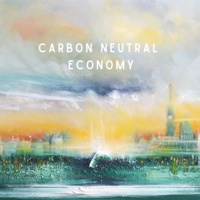Connecting individuals to the issue of climate change has proven to be difficult for many reasons. Psychological barriers and the complexity of this phenomenon keep many in a comfort zone of apathy, avoidance or denial. As a result, communicators, psychologists and behavioural experts have struggled with how best to increase engagement. Two promising additions to the action-inspiring toolkit include expanding our sense of citizenship from national to global and broadening our empathy to others around the planet and forward to future generations.
These two overlapping imperatives both rely on shifting our priorities, expanding our responsibility and becoming more connected to each other. Andrew Dobson's 2004 concept of Ecological Citizenship is similar to Global Citizenship but the latter seems to hold more traction as a social movement and educational strategy. By being more interconnected and interdependent we also increase our ability to relate to the challenges of others. As Anita Nowak explains in her inspiring TEDx talk, once our empathy is both cognitive and affective, it becomes a powerful altruistic force she calls Empathic Action. Experts increasingly believe that empathy can act as a revolutionary weapon in our battle to mitigate climate change.
By: Beverly deVries, M.A., creator of Humans of a Warming World
- Log in to post comments



CRC Comments